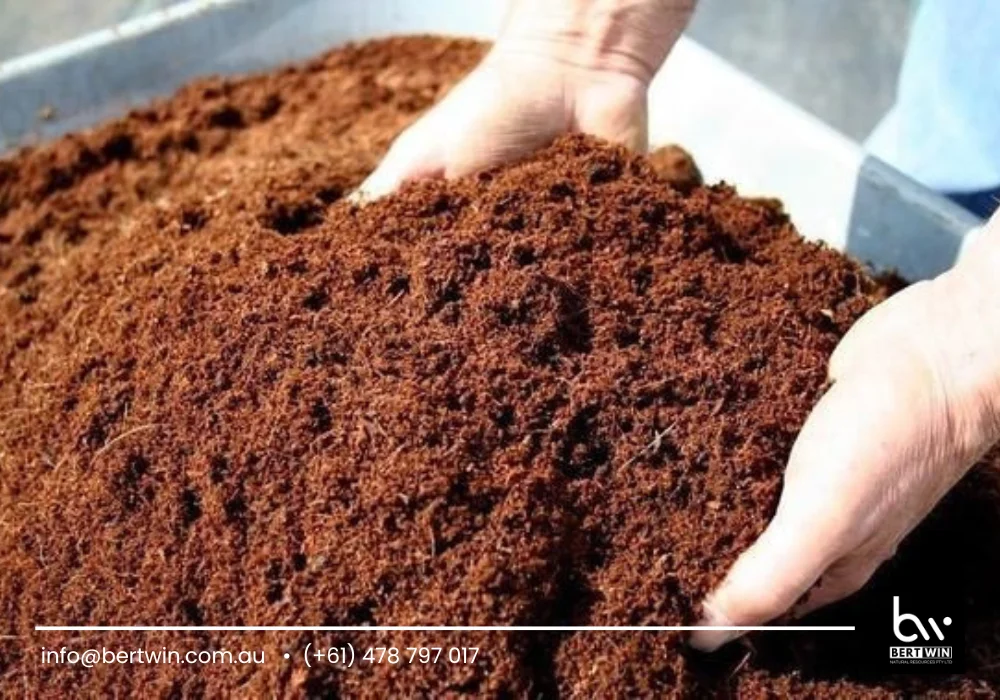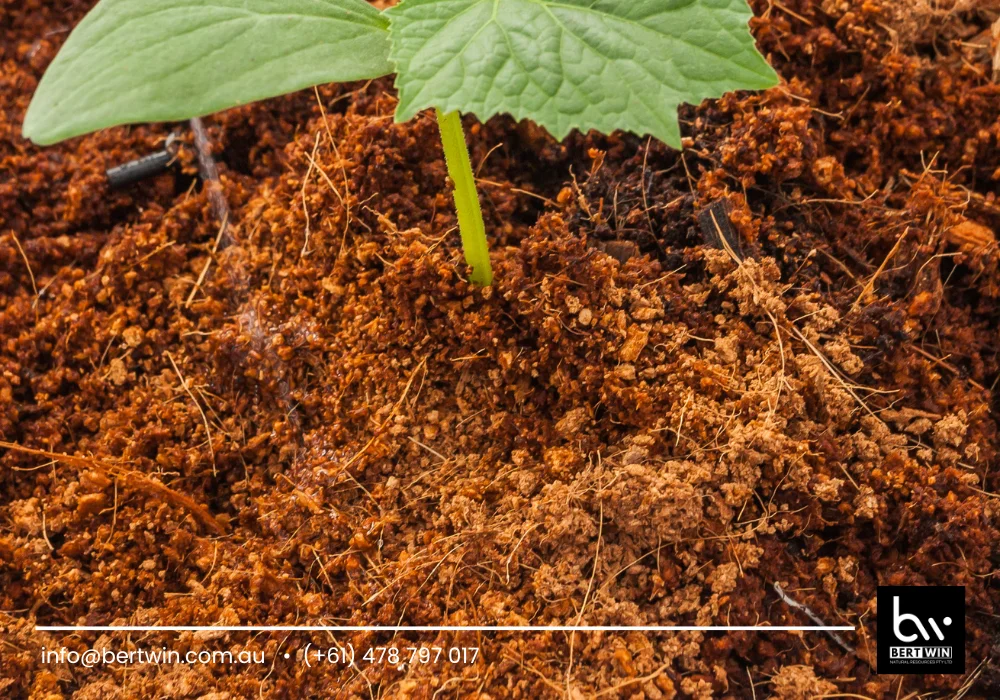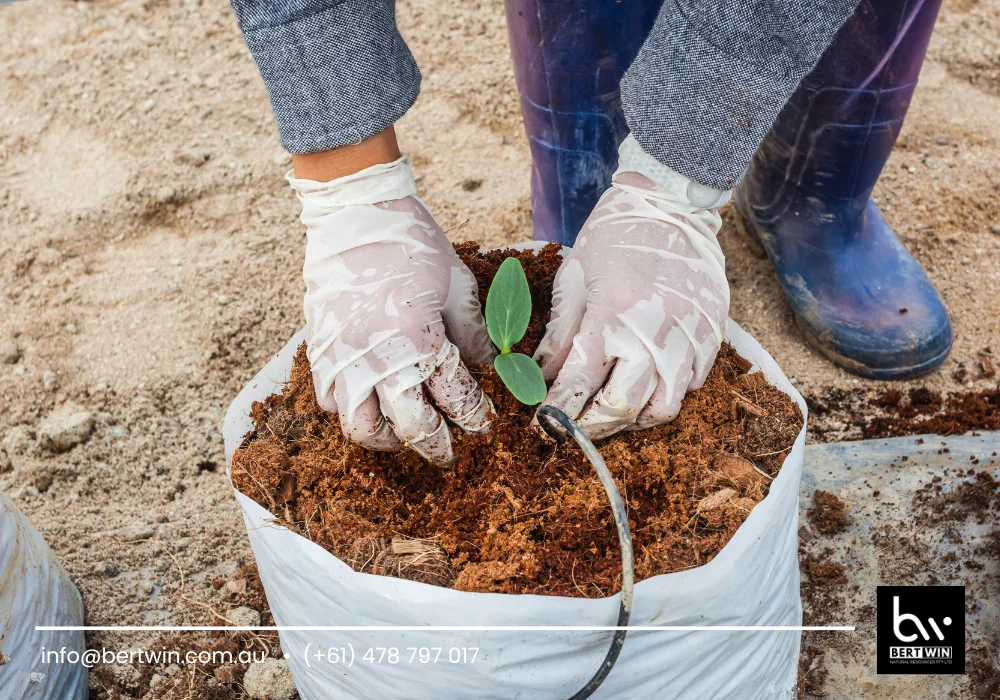
Coco peat organic fertilizer, a sustainable soil conditioner, is a game-changer in gardening and agriculture, offering various benefits to improve plant health. Derived from coconut husks, this product includes coir pith, coir fiber pith, and coir fibre, which have been used for centuries in tropical regions to create coco peat organic fertilizer. This natural product enriches soil while retaining moisture, making it ideal for various plants. Its sustainability aspect appeals to eco-conscious gardeners. Coco peat organic fertilizer enhances aeration and drainage, promoting healthy root growth. With its rich nutrient content, it’s no wonder this organic option is gaining popularity worldwide. Embrace coco peat organic fertilizer to elevate your gardening experience.
Benefits of Coco Peat
Enhances Soil Quality
Coco peat organic fertilizer improves soil structure by increasing aeration and drainage. This leads to better root development, allowing plants to grow healthier. Good quality coco peat retains moisture effectively, preventing soil compaction and promoting root expansion.
Furthermore, coco peat organic fertilizer enhances the soil’s organic content, providing a light texture that makes it easier for plants to access nutrients. This natural coconut coir product also helps maintain a balanced environment for beneficial microorganisms essential for healthy soil.
Improves Plant Health
Using coco peat organic fertilizer can significantly boost plant health. It creates an ideal growing medium that supports strong root systems using coco coir. Plants grown in coco peat tend to show increased resistance to diseases. This is due to improved air circulation and moisture retention.
The plant coir functions allow for better water management. Plants can absorb water without becoming waterlogged. This balance reduces stress on plants during dry spells or heavy rains. Overall, healthier plants lead to higher yields.
Provides Nutritional Value
Coco peat organic fertilizer acts as a source of essential nutrients for plants. It contains trace elements that support growth and flowering. The premium cocopeat block unlocks these nutrients gradually, ensuring plants receive what they need over time.
Incorporating coco peat into gardening practices offers many advantages. It is a sustainable option that benefits both the environment and plant life.

Using Coco Peat Organic Fertilizer in Gardening
Effective Application Techniques
Coco peat is versatile in gardening. Organic coco peat fertilizer can improve soil structure. Mix it with garden soil at a ratio of 1:3 for best results. This blend retains moisture while allowing good drainage.
Using yield titan coco peat enhances nutrient retention. Apply it as a top dressing to established plants. This method keeps the soil moist and provides essential nutrients over time.
Suitable Gardening Practices
For optimal results, gardeners should consider specific practices. Incorporating coco coir mix into potting soil promotes healthy root growth. It also supports better aeration, which is crucial for plant health.
Regularly check the moisture levels when using medium cocopeat. It may dry out faster than traditional soils. Adjust watering schedules accordingly to ensure plants thrive.
Role in Organic Gardening
Coco peat plays a significant role in organic gardening. It is a sustainable option made from coconut husks. This makes it an eco-friendly choice for gardeners.
Using organic neem cocopeat can further enhance plant health. Neem acts as a natural pest repellent, protecting your garden without chemicals. This combination supports a thriving ecosystem in your garden.
Coco Peat in Hydroponics and Farming
Hydroponic System Integration
Coco peat plays a vital role in hydroponic systems. This medium retains moisture well, ensuring plants receive adequate water. Natural coconut coir helps create a balanced environment for roots. It provides aeration, which is crucial for healthy plant growth. Many growers prefer coco coir over traditional soil. It reduces the risk of diseases often found in soil-based systems.
Commercial Farming Benefits
Commercial farms benefit significantly from using coco peat. Its lightweight nature lowers shipping costs when sourcing bulk coco coir. Farmers notice improved drainage and aeration with coco mix. This leads to enhanced root development and higher yields. The ability to reuse cocopeat blocks also reduces waste. It is environmentally friendly, as it utilises by-products of coconut processing.
Maximising Plant Growth
Maximising plant growth requires careful management of resources. Coco peat provides essential nutrients and supports various crops effectively. Using rich cocopeat can boost nutrient availability, leading to robust plants. Growers can combine coco with other organic materials for optimal results. This combination enhances moisture retention while promoting healthier root systems.

Environmental Impact and Sustainability
Eco-Friendly Gardening Practices
Coco peat serves as an excellent medium for eco-friendly gardening. It helps retain moisture in soil, reducing the need for frequent watering. This property is crucial in conserving water resources. Many gardeners appreciate its ability to improve soil structure. It enhances aeration and drainage, promoting healthy root growth.
Using coco peat supports organic gardening initiatives. It is free from harmful chemicals. Thus, it contributes to healthier plants and ecosystems. Gardeners seeking sustainable solutions often turn to coco peat for these reasons.
Sustainable Production Methods
The production of coco peat involves minimal environmental disruption. Harvesting coconut husks does not require deforestation or land clearing. Instead, it utilises a by-product of the coconut industry. This practice ensures that all parts of the coconut are used effectively.
Manufacturers focus on sustainable practices during processing. They employ methods that minimise energy consumption and waste generation. This commitment to sustainability makes coco peat a responsible choice for gardeners.
Role in Reducing Waste
Coco peat plays a significant role in reducing waste. Every year, millions of coconuts are processed, generating large amounts of husk waste. Coco peat repurposes this material, preventing it from ending up in landfills.
By using coco peat, gardeners contribute to a circular economy. They help reduce the overall carbon footprint associated with traditional fertilisers. This shift towards sustainable practices is essential for future generations.

Final Remarks
Coco peat is a game changer for your gardening and farming needs. It boosts soil structure, retains moisture, and promotes healthy root growth. Plus, it’s eco-friendly, making it a win-win for both you and the planet. Whether you’re potting plants or setting up a hydroponic system, coco peat delivers results that speak for themselves.
Embrace this organic fertilizer and transform your green space today. With its numerous benefits, you’ll see the difference in your plants’ health and vitality. Don’t miss out on the chance to make your gardening efforts more sustainable. Dive into the world of coco peat and watch your garden thrive!
Frequently Asked Questions
What is coco peat?
Coco peat, also known as coir pith, is a natural by-product of coconut husks. It is an excellent organic material used in gardening and farming due to its water retention properties and aeration benefits.
How does coco peat benefit plants?
Coco peat improves soil structure, enhances moisture retention, and provides essential nutrients. It promotes healthy root development and encourages beneficial microbial activity, leading to stronger plants.
Can coco peat replace traditional soil?
Yes, coco peat can effectively replace traditional soil in many applications. It offers superior drainage and aeration while retaining moisture, making it ideal for potting mixes and hydroponics.
Is coco peat environmentally friendly?
Absolutely! Coco peat is a sustainable product derived from coconut processing. It is biodegradable, renewable, and helps reduce waste by utilising materials that would otherwise be discarded.
How do I use coco peat in my garden?
To use coco peat, mix it with existing soil or compost. It can also be used as a standalone medium for potting plants or seed starting. Ensure proper watering to maximise its benefits.
Does coco peat need to be treated before use?
Generally, no treatment is required. However, it’s advisable to rinse coco peat to remove excess salts before using it in sensitive plants or hydroponic systems.
Where can I buy coco peat?
Coco peat is widely available at garden centres, online retailers, and agricultural supply stores. Look for high-quality brands that ensure purity and sustainability for the best results.
In conclusion, if you are eager to delve deeper into the details of coir products, feel free to explore our website at www.bertwin.com.au. Additionally, for direct and instant connection with our team, you can reach us through the following WhatsApp link here. We look forward to providing you with the information and assistance you need.
Read More : 5 Reasons Why Coco Coir Bulk Australia Near Me is the Best Choice
